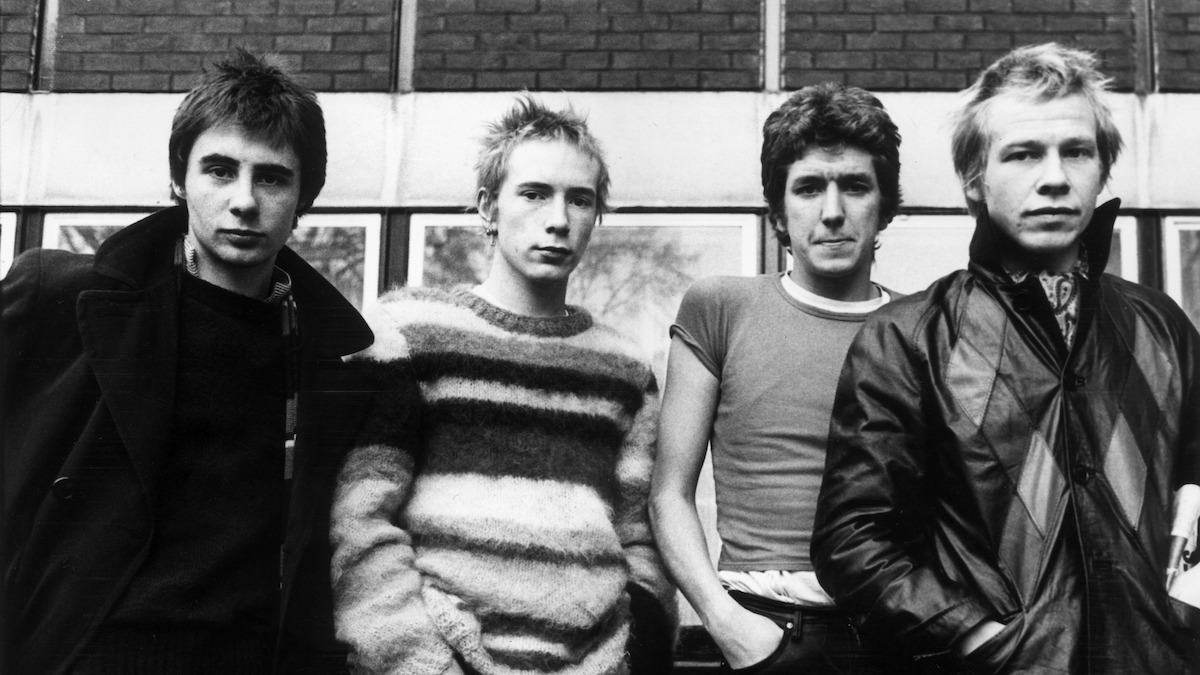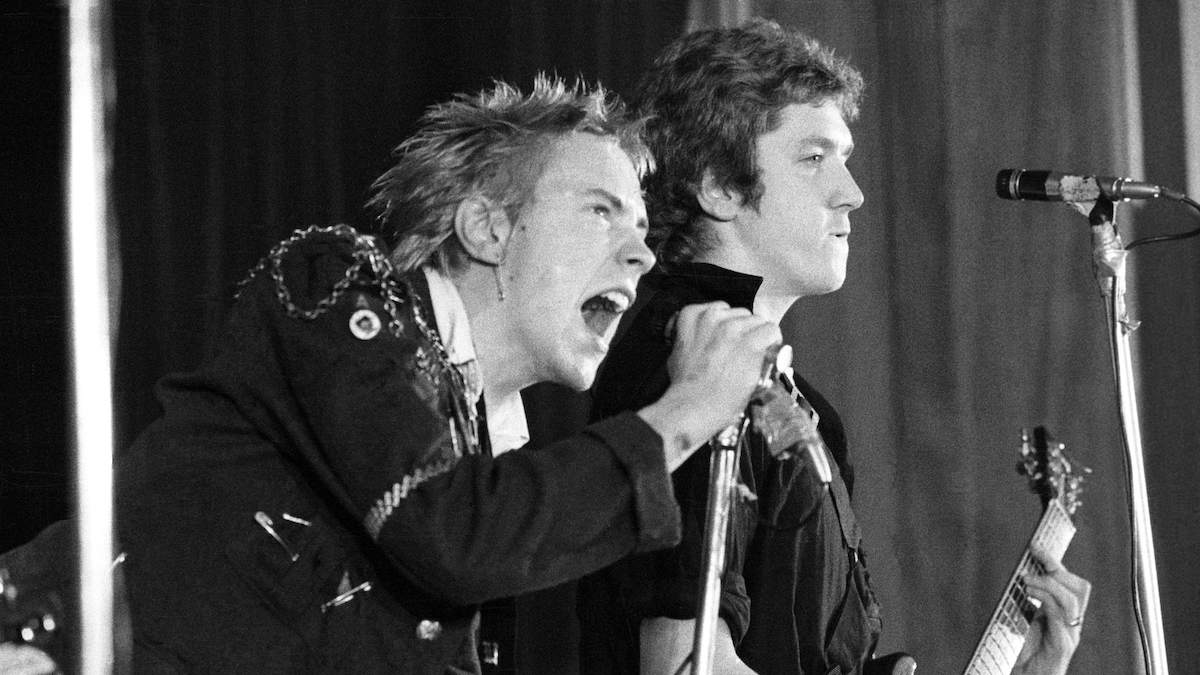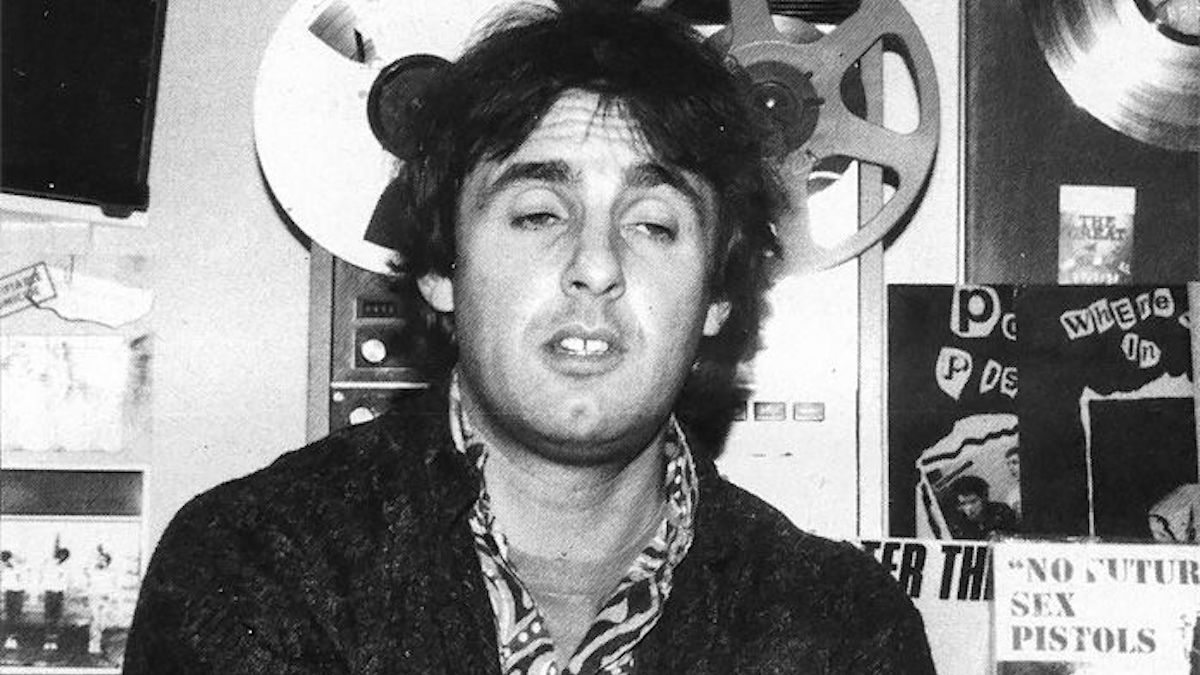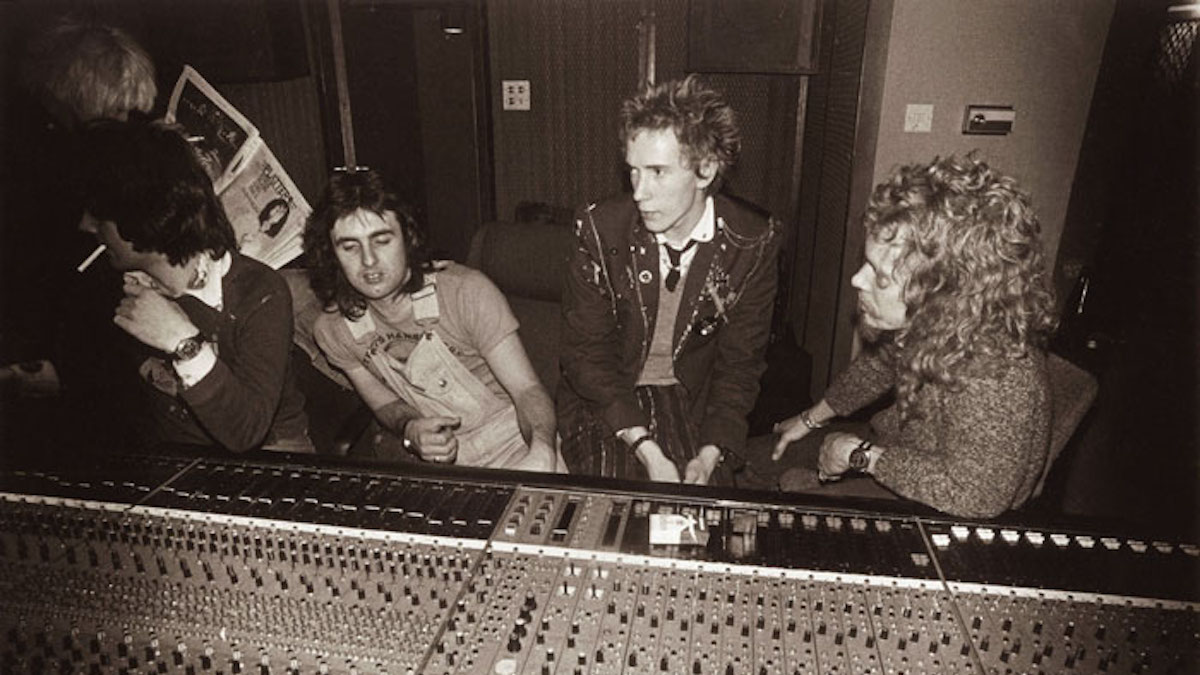“People think that Spunk is a lot better than Never Mind The Bollocks, which is very gratifying”: Producer Dave Goodman reveals how he recorded the 'lost' Sex Pistols album, and how it kick-started the punk revolution
Classic interview reveals how his recordings became what some believe is the true Sex Pistols debut album

As if the story of punk rock couldn't get any more outrageous, it turns out that the Sex Pistols' genre- and era-defining 'debut' release Never Mind the Bollocks wasn't the band's first release, after all.
A 'lost' interview with producer Dave Goodman, has unearthed details about his 'lost' Pistols album, Spunk. Never mind what you thought you knew about punk. It's probably b*llocks…

The story of punk couldn’t be any more, well, punk rock. It’s one of anarchy, aggression, BBC bans, record deals, number ones, cash being made, and then the whole scene disappearing up its own behind as quickly as it was spewed forth from its sweary mouth in the mid to late 70s.
Bollocks was the punk platter that mattered, but it was neither the Pistols' only nor debut release…
But just as you thought you knew that story inside out – that it was all about the Sex Pistols, or a load of bands trying to be the Sex Pistols, and then every band influenced by punk since saying they saw the Sex Pistols – prepare to have your tiny, square minds blown.
Because while the Sex Pistols' one and only album Never Mind the Bollocks, Here’s the Sex Pistols was the punk-defining platter that mattered, it was actually neither the band’s one-and-only album, nor was it (really) their debut. That honour goes to an album called Spunk. Well, we did tell you to prepare yourselves…

Yes, the story of punk rock is all about The Sex Pistols, nothing more and nothing less. Forget what your dad or grandad tells you about them being in their own punk band. They weren’t in the Sex Pistols, so it doesn’t matter what they did in the late 1970s.
While the story of punk is a well trodden one, a lesser known and more interesting tale can be found in the recording of those early punk standards
Punk’s history is a short and sweet one, a two-and-a half-year period during the mid to late 1970s when Johnny Rotten, Paul Cook, Steve Jones and Glen Matlock (later replaced by Sid Vicious ) released God Save the Queen, got banned, released the album Never Mind the Bollocks, Here’s the Sex Pistols, hit number one, and then broke up a year later.
Get the MusicRadar Newsletter
Want all the hottest music and gear news, reviews, deals, features and more, direct to your inbox? Sign up here.
This period might have been short but its impact was huge, not just for the punk scene that exploded from it, but for music to this day, with many alternative bands tracing their sound, or at the very least their attitude, back to those formative days in the 1970s.
But while the story of punk is a well trodden one, with strands that exist in music and popular culture today, perhaps a lesser known and more interesting tale can be found in the recording of those early punk standards. So interesting, in fact, that it turns out that Never Mind the Bollocks… was not in fact the Sex Pistols’ debut album.
Just before this landmark album was released, an album by the band appeared called Spunk. It was a bootleg – although even that definition came into question – and it was recorded by the late producer and engineer Dave Goodman.

Dave sadly passed away in 2005, but his story lives on in a number of punk tales. He was essentially the first person who successfully approached the Sex Pistols with a tape recorder – a Teac 3340, fact fans – in May 1976, recording the band’s early sessions at a rehearsal room in Denmark Street in London.
Goodman would record early versions of Pistols’ classics Anarchy…, Pretty Vacant and Submission during the sessions, much rawer versions that those that appeared on Never Mind the Bollocks – as if those aren't raw enough.
Here's an early Goodman recording of Anarchy in the UK.
Several of his recordings eventually appeared on the album Spunk, a bootleg that mysteriously appeared in September 1977, just before the band's official debut Never Mind the Bollocks… was released.
I told Malcolm I could do better on my four-track and he took me at my word
Dave Goodman
We've unearthed a four-decade old interview with Goodman that sheds some light not only on these recording sessions, but also gives an insight on how Spunk became what you might call the true Sex Pistols debut.
Goodman got the recording gig after becoming the Pistols' live sound engineer for their early gigs. The band's first 'proper' recording session with another engineer was a disaster so Goodman told Pistols manager Malcolm McLaren that he was the man to make a much better job of it.
"I told Malcolm I could do better on my four-track and he took me at my word," Goodman explained in a 1986 interview with International Musician and Recording World.

Goodman was then given the task of recording the band at their rehearsal room, setting up the Teac and an Allen & Heath 16-2 mixer in the room above it – which also happened to be Steve Jones' bedroom. Yes, this historic debut recording of punk's finest band was not exactly what you might call glamorous.
Malcolm insisted that live the band should be extremely loud, so we had problems from the outset
It wasn't exactly easy," Goodman said. "To begin with Malcolm insisted that live the band should be extremely loud. So Steve and Glen Matlock were turned full up so that was their 'sound' and what had to be down on tape. Steve's gear then was a Les Paul and a Fender Twin which wound all the way up was pretty loud! So we had problems from the outset."
However, as the sessions progressed, so Goodman's recordings increased in quality, and he began to see the band in a new light, as did the record companies who heard the demos. And it is widely believed that the Sex Pistols were signed largely because of the quality of Goodman's recordings.
"Once I got Steve into the idea of overdubs, the music began to come out of the band. It surprised the record companies because those tapes showed that the band could play, which wasn't always apparent from the gigs. And to this day I think Malcolm still believes they [Goodman's tracks] should have been the album. As it was I went round with him to the early record company meetings as the prospective producer."
Indeed, after the Pistols signed with Virgin, Goodman was lined up to produce the first album, but after some initial recording sessions, he was replaced by Chris Thomas who would be the official producer on the official Sex Pistols debut album Never Mind The Bollocks.
If I'm honest I think some of the sounds on his Never Mind The Bollocks were better
"At the time he [Thomas] was quoted as saying my demos were releasable. If I'm honest I think some of the sounds on his Never Mind The Bollocks were better. But the arrangements and structures were all things I'd worked out with Steve, and musically it wasn't as good because Glen [Matlock] soon left the band and Steve had to do a lot of the bass parts since Sid Vicious couldn't play at all. They were a bit dumdumdumdum rather than the old walking lines which were really good."
Some of Goodman's recordings for his later sessions with the band made it on to official Sex Pistols b-sides and The Great Rock & Roll Swindle double album, but the earlier tracks he recorded in Denmark Street were never officially released. We say 'officially' because many found their way onto the album Spunk, a bootleg album that came out in September 1977, just before Never Mind the Bollocks.
There are all sorts of theories about how these recordings of the Pistols were made public, with some saying that Malcolm McLaren was responsible, as his company had the rights to the recordings.
Despite making those initial historic recordings, by 1977 Goodman was off the Sex Pistols' books. He went on to set up his own successful record label, The Label, and even went onto work on some quite varied hit records including the amazing Drowning in Berlin (above) by The Mobiles, and the not so amazing Will He Kiss Me Tonight by Lena Zavaroni.
I don't know to this day who bootlegged it. Only Malcolm McLaren and me had copies of the tape and he says it wasn't him
Dave Goodman
Of his own contribution to music history, Goodman was nonplussed in the 1986 interview, just happy that some people regarded his recordings as superior to the official ones that came after.
"A lot of people think that Spunk is a lot better than Never Mind The Bollocks, which is very gratifying even though my name is down as P. Dickerson on the label."
And as to how Spunk came out? Well, Goodman never found an answer to that one.
"I don't know to this day who bootlegged it," he said. "Only Malcolm McLaren and me had copies of the tape and he says it wasn't him. But it's sold all round the world although I've never seen any money from it."
Andy has been writing about music production and technology for 30 years having started out on Music Technology magazine back in 1992. He has edited the magazines Future Music, Keyboard Review, MusicTech and Computer Music, which he helped launch back in 1998. He owns way too many synthesizers.
"At first the tension was unbelievable. Johnny was really cold, Dee Dee was OK but Joey was a sweetheart": The story of the Ramones' recording of Baby I Love You
"Reggae is more freeform than the blues. But more important, reggae is for everyone": Bob Marley and the Wailers' Catch a Fire, track-by-track










